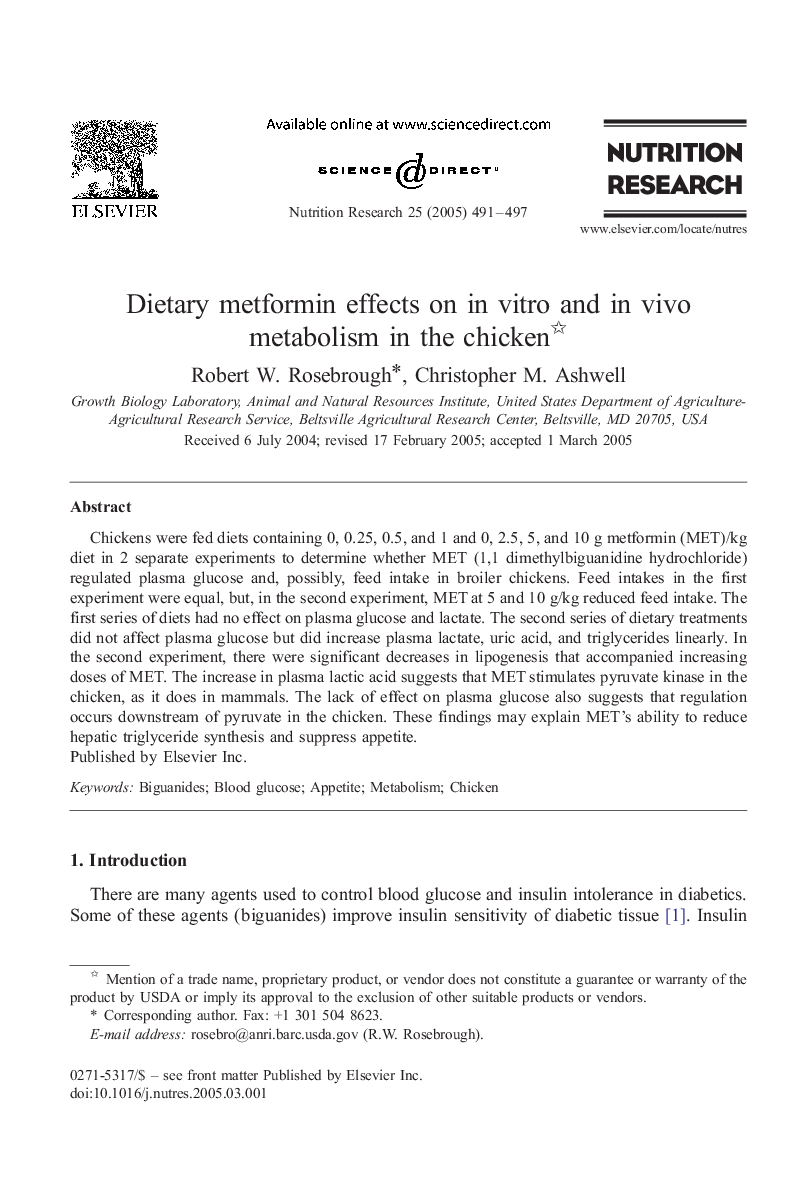| Article ID | Journal | Published Year | Pages | File Type |
|---|---|---|---|---|
| 9119018 | Nutrition Research | 2005 | 7 Pages |
Abstract
Chickens were fed diets containing 0, 0.25, 0.5, and 1 and 0, 2.5, 5, and 10 g metformin (MET)/kg diet in 2 separate experiments to determine whether MET (1,1 dimethylbiguanidine hydrochloride) regulated plasma glucose and, possibly, feed intake in broiler chickens. Feed intakes in the first experiment were equal, but, in the second experiment, MET at 5 and 10 g/kg reduced feed intake. The first series of diets had no effect on plasma glucose and lactate. The second series of dietary treatments did not affect plasma glucose but did increase plasma lactate, uric acid, and triglycerides linearly. In the second experiment, there were significant decreases in lipogenesis that accompanied increasing doses of MET. The increase in plasma lactic acid suggests that MET stimulates pyruvate kinase in the chicken, as it does in mammals. The lack of effect on plasma glucose also suggests that regulation occurs downstream of pyruvate in the chicken. These findings may explain MET's ability to reduce hepatic triglyceride synthesis and suppress appetite.
Related Topics
Life Sciences
Biochemistry, Genetics and Molecular Biology
Endocrinology
Authors
Robert W. Rosebrough, Christopher M. Ashwell,
